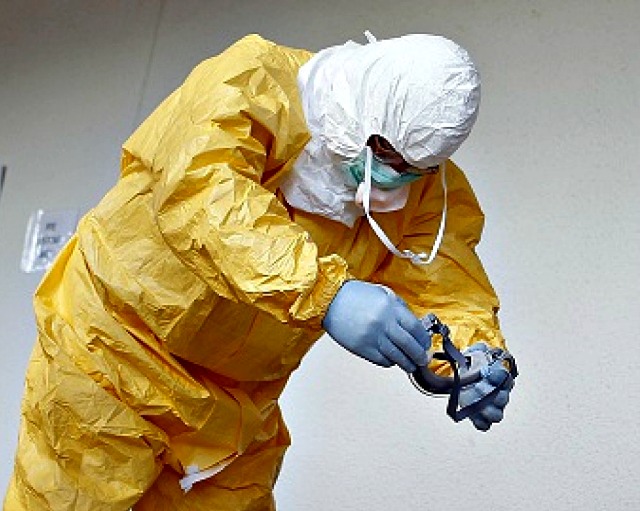
Lack of training, inadequate protective gear, and a desire for a higher level of insurance for infectious disease are the main demands from the formidable California National Nurses United union in contract negotiations with Kaiser Permanente.
Those negotiations have been affected by an increase in concern over Ebola and the recent cases of two Texas nurses who contracted the disease from Ebola patient zero, Thomas Duncan.
In August, a patient at Kaiser Permanente South Sacramento Medical Center being tested for Ebola was found not to have the disease. During testing, the patient had been admitted to the hospital and kept in isolation as a precaution.
But given the two recent cases of Ebola contracted by nurses in Texas and a general consensus among nurses nationwide that their hospitals are ill prepared to protect healthcare workers and the general public, safety concerns persist. Now those nurses are calling for accountability from the White House and Centers for Disease Control (CDC).
“We’ve been ignored by the White House and the CDC,” said one National Nurses United (NNU) representative on a Wednesday conference call. Nurses and medical professionals around the country relayed the concerns of medical professionals in the hospitals they work in. Every one that spoke voiced concerns over lack of protocols and preparedness for safely handling cases of Ebola.
Overwhelmingly, reports from California, New York, Michigan, Massachusets, Illinois, Washington, D.C., and Florida came in from nurses who said they were not adequately trained. When they ask for training, nurses report being shocked, as they have been referred only to the CDC website for information on how to properly handle cases of the virus.
Even a nurse from Spain and one from West Africa joined the call to offer updates from their regions.
A letter to President Barack Obama released Wednesday and signed by NNU Executive Director RoseAnn DeMoro stated, “not one more patient, nurse, or healthcare worker should be put at risk due to a lack of health care facility preparedness. The United States should be setting the example on how to contain and eradicate the Ebola virus.”
The importance of proper training in using protective equipment was emphasized on the conference call, as this is a highly probable source of contamination. “Even the best equipment, which they don’t have, can fail if it is not put on and off correctly,” was the message communicated.
During the conference call, government officials were criticized for early blame put on the second nurse to contract Ebola in Texas. She was reportedly blamed for a “breach of protocol,” but call participants said if any blame is laid, it should be put on those who failed to train the nurses.
Monday, CDC Director Dr. Thomas Frieden conveyed a need for the government agency to reconsider its approach to containing Ebola, after the first nurse tested positive for the virus following Duncan’s treatment.
According to an NNU national survey of 2,200 RNs from more than 750 facilities across the country, “85 percent say their hospital has not provided education on Ebola with the ability for the nurses to interact and ask questions – a percentage that remains largely unchanged,” while another 40 percent say hospital personal protective equipment supplies are not sufficient to protect medical personnel from a virus like Ebola.
Kaiser infectious disease specialist Dr. Stephen Parodi said in a statement regarding the August Sacramento patient cleared of Ebola, “We are proud of the work our teams are doing to exercise every precaution necessary to protect the health, safety, and well-being of Kaiser Permanente members and employees, following CDC guidelines.” He continued, “We placed the patient in a specially equipped negative pressure room, and provided the staff who were caring for the patient with appropriate infection control training, which includes personal protective equipment.”
Worldwide, approximately 8,914 known or suspected cases of Ebola have been reported. Of those, approximately 4,447 have died, an NNU representative said during Wednesday’s conference call. Some 10,000 cases are projected worldwide come the first week in December of this year.
Follow Michelle Moons on Twitter @MichelleDiana

COMMENTS
Please let us know if you're having issues with commenting.